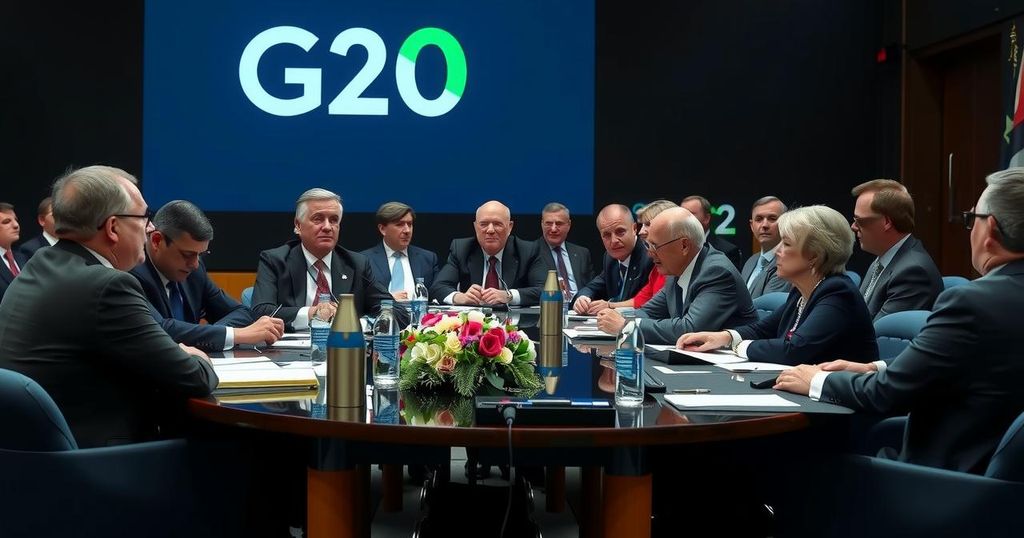The UN warns that without the G20’s agreement on climate finance for poorer countries, dire economic consequences could ensue. With the ongoing Cop29 summit highlighting the urgency, leaders are urged to secure significant financial commitments to aid vulnerable nations in combating climate change. A collective effort is necessary not only for financial support but also for enhanced emission reduction targets to address the imminent climate crisis.
The imminent G20 summit in Rio de Janeiro represents a pivotal opportunity for the leaders of the world’s largest economies to address the urgent financial needs of the poorest nations grappling with climate change. As the UN warns of potential “economic carnage” if the G20 fails to act, discussions revolve around securing substantial financial commitments to assist developing countries in mitigating greenhouse gas emissions and enhancing their resilience against extreme weather events. Current negotiations at the concurrent Cop29 summit have highlighted the crucial need for innovative financial solutions, with estimates suggesting that around $1 trillion annually is necessary by 2030 to meet the obligations of the Paris climate agreement. Without action, the ramifications of climate inaction will permeate all economies, reinforcing the necessity for cohesive international cooperation to avert a climate crisis.
The G20 summit focuses on aligning economic strategies with climate action, underscoring the critical link between financial support and effective climate resilience particularly for impoverished nations. Current challenges arise amid stalled negotiations at the Cop29 climate summit, emphasizing the urgency for developed countries to fulfill their financial commitments. Historical context is essential here, as prior summits have vacillated on firm commitments, necessitating the integration of stringent climate action within national frameworks and financing structures to catalyze support for vulnerable countries. Observations around Azerbaijan’s petroleum-based economy also raise questions about the integrity and impact of climate negotiations being held in fossil fuel-rich states, which may dilute the urgency of the discussions.
The convening of G20 leaders in Brazil marks a crucial moment for global climate finance initiatives aimed at aiding the most vulnerable nations. With the UN’s stark warning against inaction serving as a backdrop, the discussions must prioritize financial assistance and coordinated emissions reduction targets. Failure to reach agreements could lead to dire economic consequences, underscoring the need for substantial international cooperation and commitment to safeguarding the future of all nations in light of escalating climate challenges.
Original Source: www.theguardian.com






